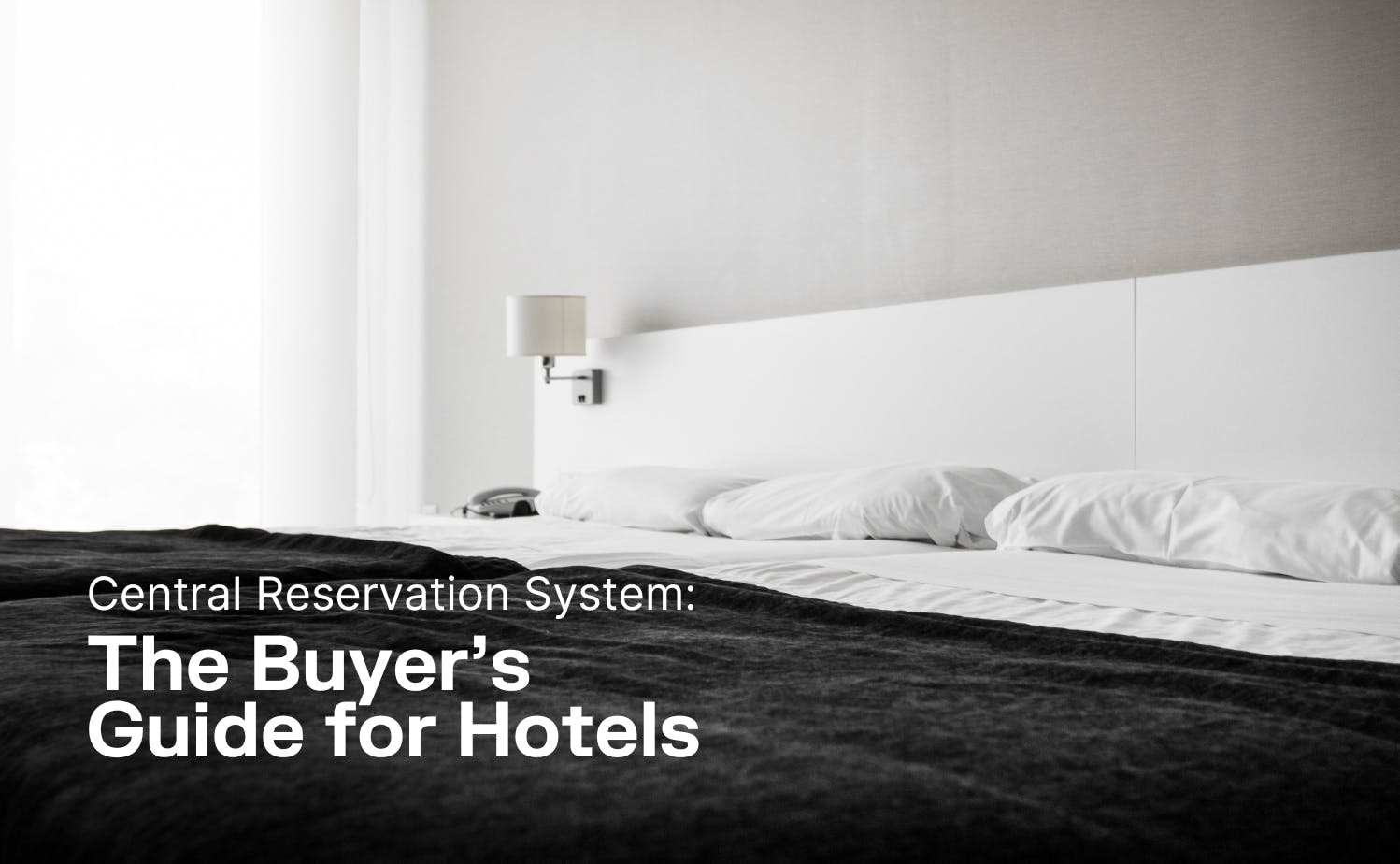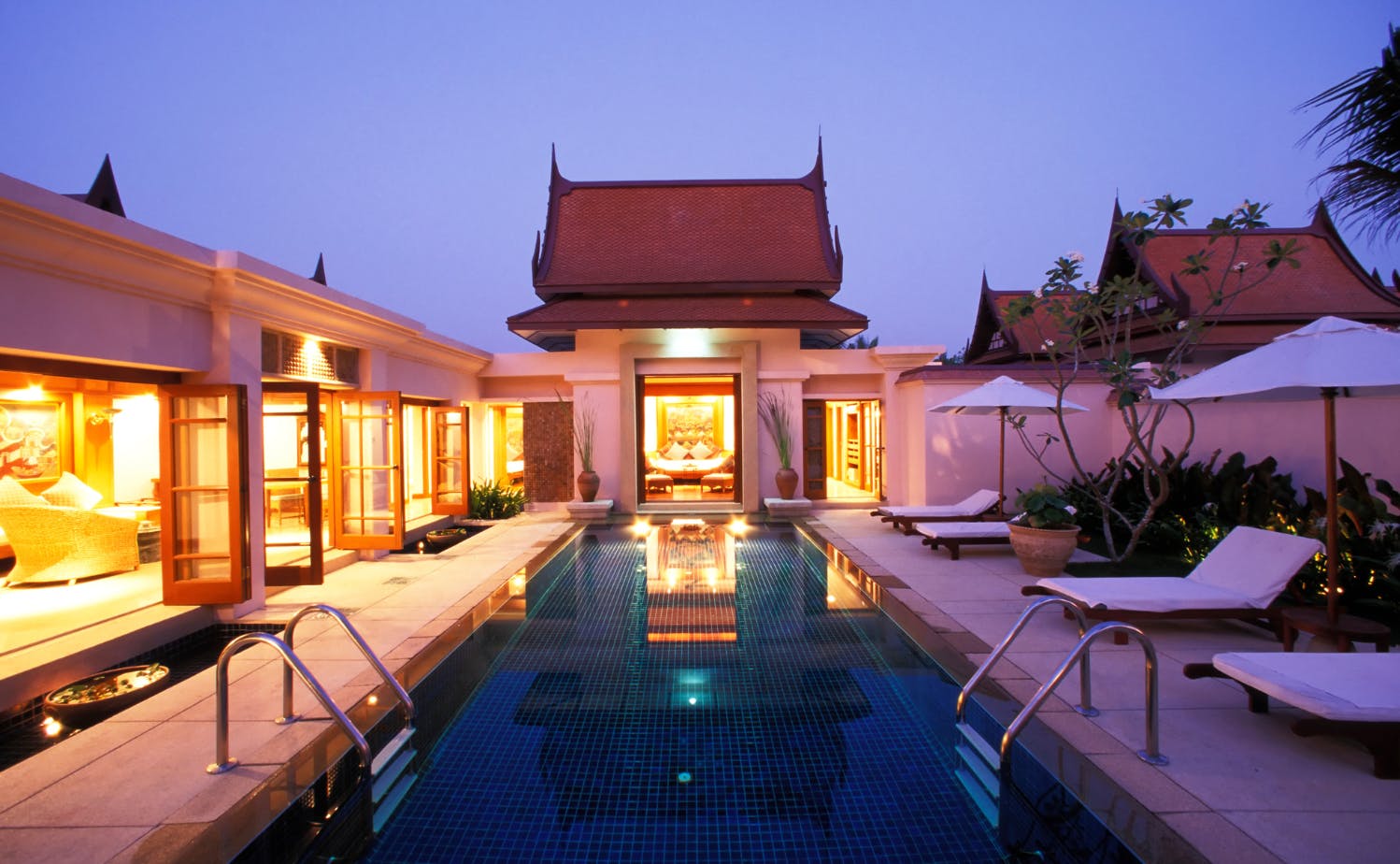
Central Reservation System: The Buyer’s Guide for Hotels

Every hotelier dreams of running a seamless operation where bookings flow effortlessly, rooms are filled at the right price, and guests leave with smiles. But behind this dream lies the need for a powerful tool to orchestrate it all. Imagine having a central command center that not only simplifies your operations but also amplifies your guest’s experience—a tool that ensures your rooms are always booked at the optimal price and that your property shines across all booking channels. This is the magic of a Central Reservation System (CRS).
Every hotelier dreams of running a seamless operation where bookings flow effortlessly, rooms are filled at the right price, and guests leave with smiles. But behind this dream lies the need for a powerful tool to orchestrate it all. Imagine having a central command center that not only simplifies your operations but also amplifies your guest’s experience—a tool that ensures your rooms are always booked at the optimal price and that your property shines across all booking channels. This is the magic of a Central Reservation System (CRS). Whether you’re managing a cozy boutique hotel or a sprawling resort, a CRS is your gateway to smarter reservations, streamlined operations, and soaring revenues. Let’s dive into this essential tool and explore how it can transform your hotel business.
In this buyer’s guide, we’ll explore what a Central Reservation System is, its benefits, and the key features to look for when choosing the right CRS for your property.
What is a Central Reservation System (CRS)?
A Central Reservation System is a software platform that enables hotels to manage and distribute their room inventory, rates, and availability across multiple channels. These channels include direct bookings through the hotel’s website, third-party online travel agencies (OTAs), global distribution systems (GDS), and even walk-in reservations. Essentially, a CRS acts as the command center for a hotel’s booking and inventory management, ensuring all reservations are centralized and synchronized in real-time.
A CRS typically integrates with other core hotel systems like the Property Management System (PMS), Revenue Management System (RMS), and Channel Manager, creating a seamless ecosystem to handle reservations efficiently and boost profitability.
A significant 89% of large hotel chains have adopted a CRS-centric strategy.
Benefits of a Central Reservation System for Hotels
Investing in a high-quality CRS offers numerous advantages for hotels, from operational efficiency to revenue growth. Below are some of the key benefits:
1. Streamlined Operations
A CRS consolidates reservation data from all distribution channels into a single platform. This centralization eliminates the need for manual updates across multiple platforms, reducing the risk of errors like double bookings or mismatched rates. Your team can focus on delivering exceptional guest experiences rather than juggling spreadsheets and outdated systems.
2. Real-Time Inventory Management
Real-time synchronization ensures that room availability, rates, and restrictions are updated instantly across all channels. This reduces the likelihood of overbookings and ensures guests have accurate information when making a reservation.
3. Enhanced Revenue Management
With integrated revenue management tools, a CRS enables dynamic pricing strategies based on demand, occupancy levels, and market trends. This means you can optimize your rates to maximize revenue during peak seasons and attract guests during slower periods.
4. Increased Direct Bookings
A CRS often includes features that encourage direct bookings on your hotel’s website, such as user-friendly booking engines and promotional tools. These tools can also enable personalized booking experiences by showcasing tailored offers or curated room suggestions with visuals that resonate with individual guests’ preferences. Direct bookings reduce dependency on OTAs, saving you significant commission fees.

5. Improved Guest Experience
A CRS can personalize the booking process by offering tailored promotions, room packages, or loyalty rewards based on guest preferences and booking history. Additionally, by ensuring seamless communication between departments, a CRS helps deliver a smooth and satisfying stay for your guests.
6. Better Analytics and Reporting
Comprehensive reporting features provide valuable insights into your property’s performance, including booking trends, channel contributions, and revenue metrics. These insights empower data-driven decisions to improve your overall business strategy.
7. Global Reach
By connecting to OTAs, GDSs, and metasearch platforms, a CRS helps expand your property’s visibility and reach to international markets. This is particularly beneficial for hotels aiming to attract travelers from diverse geographic locations.
Key Features to Look for in a Central Reservation System
Not all Central Reservation Systems are created equal. When evaluating a CRS for your hotel, consider the following features to ensure you’re making the right investment:
1. Channel Integration
A robust CRS should integrate seamlessly with major OTAs, GDSs, and metasearch platforms like Google Hotel Ads. Look for a system that allows two-way communication to ensure real-time updates on inventory and rates across all channels.
2. User-Friendly Interface
Ease of use is essential for both your staff and guests. A CRS with an intuitive dashboard, simple navigation, and clear workflows will save time and reduce training costs for your team.
3. Cloud-Based Functionality
Cloud-based CRSs offer the advantage of being accessible from anywhere, ensuring your team can manage reservations on the go. Additionally, cloud systems provide automatic updates and improved security, minimizing downtime and operational risks.
4. Integration with PMS and RMS
Ensure the CRS integrates with your existing Property Management System and Revenue Management System. These integrations create a unified ecosystem that simplifies daily operations and enhances revenue optimization strategies.
5. Dynamic Pricing Tools
Look for a CRS that supports dynamic pricing capabilities. This feature adjusts room rates in real-time based on market demand, ensuring you remain competitive while maximizing profitability.
6. Customizable Booking Engine
A customizable booking engine allows you to create a seamless and branded booking experience for your guests. Ensure the engine supports mobile optimization, multiple payment gateways, and multi-language options to cater to a global audience.
7. Analytics and Reporting
Advanced reporting tools should be a priority. These tools provide actionable insights into key performance metrics like occupancy rates, average daily rate (ADR), and revenue per available room (RevPAR). Look for systems that offer customizable reports and data visualization.
8. Multi-Property Management
If you manage multiple properties, choose a CRS that supports centralized management across locations. This feature streamlines operations, provides a unified view of performance, and allows cross-selling opportunities between properties.
9. Mobile Accessibility
A mobile-friendly CRS ensures your team can access critical functions from smartphones or tablets. This is particularly useful for on-the-go managers or during emergencies.
Steps to Choose the Right CRS for Your Hotel
1. Assess Your Needs
Identify your hotel’s specific requirements, such as the number of rooms, target markets, and integration needs.
2. Set a Budget
Determine how much you’re willing to invest in a CRS. Remember to consider the long-term ROI rather than just upfront costs.
3. Compare Vendors
Research and compare multiple CRS providers. Read reviews, request demos, and evaluate their features against your checklist.
4. Request a Trial
Opt for a free trial or a limited-time pilot to test the system’s functionality and compatibility with your operations.
5. Evaluate Customer Support
Ensure the vendor offers reliable support to address any issues during implementation and ongoing use.
6. Check Scalability
Choose a CRS that can grow with your property, accommodating future expansions or additional locations.
Maximizing CRS Potential
A Central Reservation System (CRS) plays a crucial role in helping hotels remain competitive by centralizing bookings, optimizing pricing, and enhancing the guest experience. To truly unlock its full potential, high-quality visual content can make a significant impact in driving conversions. That's where OCUS can be a valuable asset. By using both a CRS and OCUS’s visual performance tools, hotels can increase bookings, revenue, and brand loyalty—ensuring success in a competitive market.
How OCUS Enhances CRS Effectiveness
- Enhancing Visual Content to Drive Conversions
Provides high-quality, optimized visuals that highlight hotel properties.
- Global Network of Photographers
Access to 35,000+ photographers across 43 countries for exceptional, on-demand photoshoots.
- AI-Powered Image Moderation
Automatically moderates user-generated content to protect the brand and maintain quality.
- Automatic Image Optimization
Enhances visuals through AI adjustments in lighting, colors, and cropping for best performance.
- Seamless CRS Integration
Delivers optimized images directly into CRS, boosting guest engagement and bookings.
- Actionable Visual Performance Analytics
Provides performance insights and ROI metrics for every image to enhance conversions.